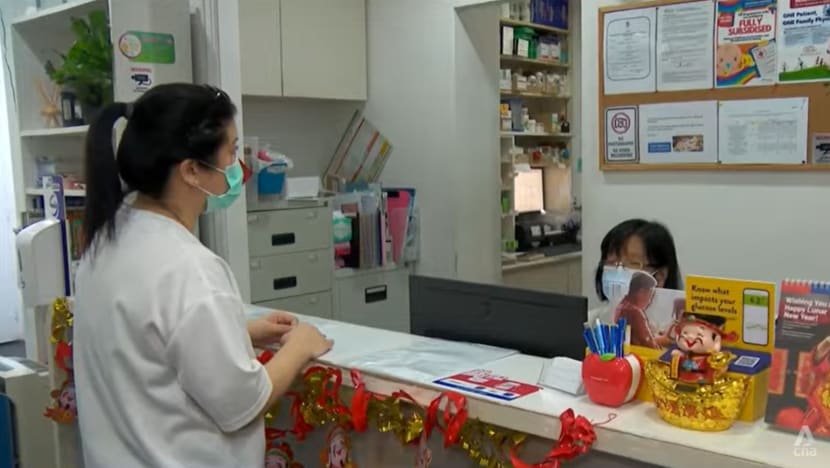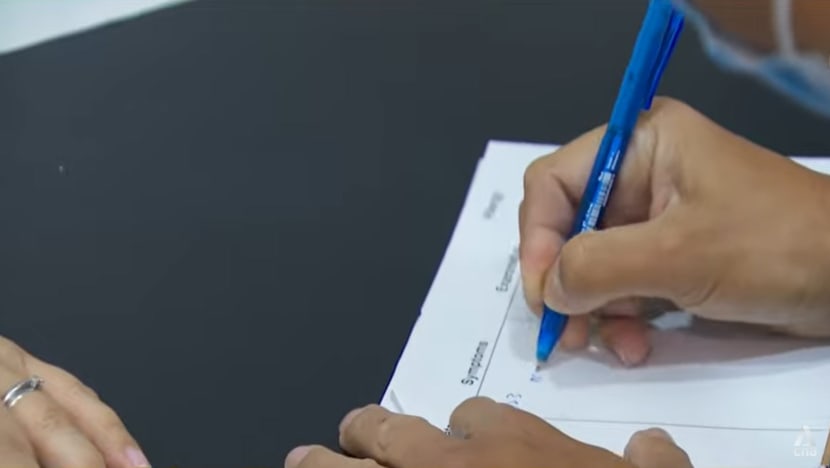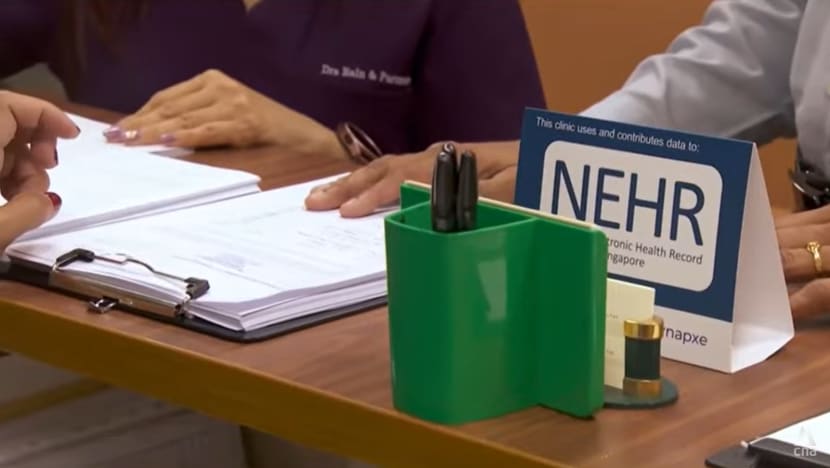Calls for tech, funding support, legal, ethical guidance as Singapore pushes towards mandatory patient data sharing
Under a proposed Health Information Bill, doctors will have to contribute key data such as a patient’s diagnosis, medications, allergies or laboratory reports to a National Electronic Health Record (NEHR).

Clinics across Singapore will soon have to contribute key data, such as a patient’s diagnosis, medications, allergies or laboratory reports, to a centralised health record system.

This audio is generated by an AI tool.
SINGAPORE: Some doctors in Singapore are calling for more technological support, funding and guidance, as the country looks to make the sharing of patient information across healthcare providers mandatory.
Under a proposed Health Information Bill, they will have to contribute key data such as a patient’s diagnosis, medications, allergies or laboratory reports to a centralised health record system, the National Electronic Health Record (NEHR).
This will provide a comprehensive record of each patient's medical history, so any future treatment can be given more effectively.
Such information sharing is also meant to go hand-in-hand with Singapore's national preventive care strategy, Healthier SG.
The Bill will be tabled for debate in parliament in the first half of this year.
However, there are uphill challenges in adjusting to the new system, especially for smaller clinics.
SMALLER CLINICS SEEK HELP
For small, single-run clinics, adjusting to the new system would require them to play catch up, as they typically rely on pen and paper to quickly jot down a patient's condition.
Even uploading existing digital data to the NEHR may require what is known as mapping work, due to differences in the systems.
Dr Chua Guan Kiat, director of Chua Medical Clinic and Surgery in Bukit Batok, told CNA that it would be a “very time consuming” effort.
"The challenge is to link up the 500 drug codes to the current system that we are using,” he said, adding that the vital signs of each patient, along with the height and weight for each visit, would also need to be keyed in.
“Many of us doctors find it tough to find time to do all this mapping work, when we should be actually spending more time doing doctoring."
Dr Chua said he is hoping for more targeted support from the government, to ensure that such electronic information is collected and stored properly.

This could come in the form of more funding from the Ministry of Health (MOH) to help clinics train their staff, so that they can be more familiar with the procedure of keying in of the drugs and diagnoses into the new system.
Providers will only be allowed to access relevant information required for them to provide care to patients, said MOH last December.
Access to sensitive health information, which could lead to social stigma or discrimination, will also be restricted, and can only be viewed by medical practitioners, selected nurses and pharmacists in public institutions based on their specific roles.
ETHICS GUIDELINES IN THE WORKS
To address potential confidentiality issues, ethics guidelines are now being drawn up to outline how doctors should use the health records, and under what circumstances.

Dr S Suraj Kumar, consultant family physician at Drs Bain & Partners, said he hopes the guidelines will address the “core ethical principles and reasonable professional standards” in using the NEHR.
"For example, I think many doctors are concerned that they will need to access the medical records in every single patient encounter, and I understand that this is not true. We only access information when it is required for patient care,” he told CNA.
He said there is no need to access the records routinely, and should do so only when “we need to have information to treat a patient and the information is not available”.
Dr Kumar also hopes the guidelines would cover new points such as the maintenance of good clinical records, medical confidentiality, and the legal and ethical considerations in various clinical settings and scenarios that doctors will face.
“The other consideration is, are they responsible for records that are already present in the NEHR? If they come across errors and so on, how (do they) handle these situations? I think this will be addressed by the guidelines in specific scenarios,” he said.
















